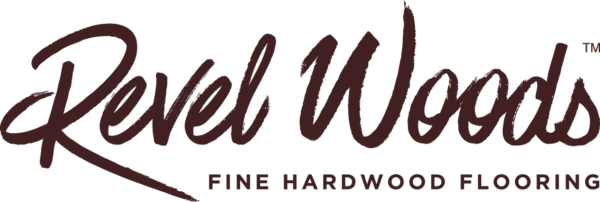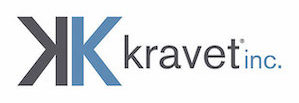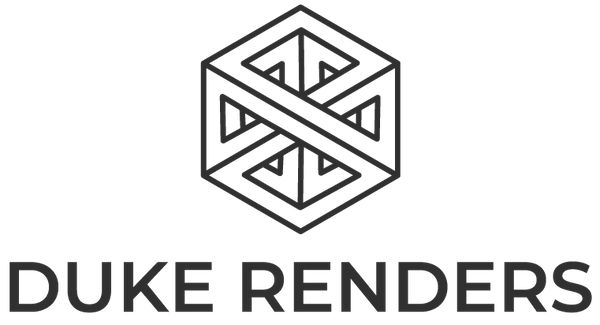When Business Booms Too Fast—Leading Through an Unprecedented Growth Spurt (What Would Lu Do?)

- By LuAnn Nigara
- February 2, 2022
- What Would Lu Do?
What if I told you that having too much business can be a big problem?
You might think I’m crazy.
After all, for the countless new business owners out there just launching and working their way through those first tough years, the idea of having too much business seems impossible.
But the growth I’m talking about is the mind-bending, back-breaking, hair-pulling, kind—that comes out of nowhere and escalates so fast you don’t know how to keep up.
If you’re reading this and still thinking it sounds like a champagne problem, still thinking you’d take it in a heartbeat, here’s my word of advice—be careful what you wish for.
Window Works and the Pandemic’s Arrival
Back when the pandemic started, business owners everywhere panicked. Window Works was no exception to that.
We didn’t know what to expect. The world was changing so fast, and we were terrified that after nearly 39 years, our business was going to blow up right in front of our eyes.
Our cost-to-be-open number was in the multiple six figures, and our year-end gross revenue goal was $3 million. But then quarantine hit. In the next six weeks, we didn’t close even $100,000 in business.
It seemed like it was the beginning of the end. But, over the years, during the hard times, we had developed solid tactics to prepare for a major economic downturn.
So, we did everything we could to fight for our business. We tapped into our experience from past recessions and threw everything we had into it. We cut costs, we took pay cuts, and we put even more into marketing.
That’s something that I have learned from my husband Vin and his best friend (who also happens to be one of my valued mentors), Fred Florio.
It’s something that has been echoed by our leaders and mentors at Exciting Windows, Steve Bursten and Steve Wishnow…
When business starts to slow down, the smart business owner doubles down on marketing.
So that’s what we did.
Business Picked Back Up… Too Much
After painstakingly trudging through March and April, things started to shift—there was a tiny little buzz in the air.
Miraculously, we did nearly $400,000 in business in May. Not only was that a massive improvement from the previous six weeks, but it was actually 40% over last year’s May (the normal, pre-COVID May).
Our sales team was firing on all cylinders, hitting it hard with phone calls and virtual presentations, and pulling many late nights.
And as the fog started to clear and May brought so much success, we started to believe that we might just make it through this.
We had no idea what we were in for.
After one good month, we weren’t relaxing. We had to keep the momentum going and make up for what we had lost in March and April. So we kept our foot on the accelerator when it came to marketing.
Determined to keep the business going, we tapped into every marketing resource we could.
We had Nicole Heymer at Glory & Brand building web pages. Christie, my daughter and brand manager, was pumping out blogs optimized for hot SEO terms.
We were taking virtual, contactless appointments and sending out email blasts. Kim started doing weekly Facebook lives with Vita—a way to keep a friendly face in front of our customers and potential customers. We cold-called and door-knocked.
We even designed and ordered postcards advertising our virtual services and partnered with two of four favorite pizza shops, who taped them to every take-out order.
No matter what, we couldn’t slow down. We had to push forward and keep the business going.
And much to our surprise, insanity came our way. In June, we killed it again with another 40% growth over the previous year. It happened again in July. And in August, we had our highest grossing sales number of all time.
There was only one word for it—unprecedented. It’s a word that has been used a lot, particularly since the beginning of the pandemic. But in this case, it truly is the only word for what happened.
Unprecedented and Unprepared
We’d done it. We’d saved the business. Our tactics had worked.
The expenses we cut, the weekly meeting where we put our heads together and figured out what to do next, our weekly coaching session with our business coach, Eileen Hahn, and, most importantly, the increase in marketing—they had all brought us more business than ever before.
Of course, we weren’t alone. The entire industry was booming. The pandemic had created a new customer base for us.
Suddenly everyone on the planet was home, looking around, and deciding they needed new awnings, drapes, and blinds. Everyone was busy.
The factories were facing their own unprecedented growth, on top of working at 50% production capacity to observe social distancing. They couldn’t keep up with the volume.
Lead times dragged—days at first, then weeks. Customers were checking in more often than ever before—a byproduct of being home all day.
And, as if all of that wasn’t enough, our showroom admin of seven years put in a two-week notice. Amid all the chaos and the weight of hundreds of extra customers, we had to hire and train.
I ended up having to pull back from the podcast and focus on training, while answering the phones, setting up sales and install appointments, and answering emails.
All of us were all-hands-on-deck, pulling late hours and pitching in wherever we could, day and night.
We were simply swamped.
Real Life Started Happening
Next, the weather decided to beat us down, literally. It stayed above 90 degrees with 90% humidity.
Our installers started having to leave mid-day from heat exhaustion. They’d been running non-stop, pushing themselves past their physical limits.
Then in mid-August, our lead awning installer fell off a ladder and broke his ankle. He needed surgery, a hard cast, and rehab. He was out until January.
And, of course, the pandemic didn’t leave us unscathed. One of our installers called to let us know his girlfriend tested positive for COVID. He had to quarantine until he could get tested.
Another installer was out with a fever two weeks in a row. He had to wait until his negative test results came in to come back to work.
Before the pandemic, I’d thought being prepared for a recession was the hardest thing I would ever do in my business. I remember back in 1993 crying almost daily. I was terrified the business would go under on my watch.
But this was different than anything I had ever experienced. This was a different beast.
Not only were we constantly working, moving parts, trying to cover gaps and handle the massive increase in sales and installs, we were also dealing with supply chain delays and factory issues.
That meant new, uncomfortable conversations with our customers.
The Hard Conversations
“Hi, Mrs. Smith, it’s LuAnn at Window Works. How are you? Oh, great, nice to hear. I’m sorry but I have some disappointing news.
Your install that’s scheduled for tomorrow—we need to cancel it. Our installer fell off a ladder and broke his ankle. Another is at home waiting for a COVID test. And a third went home sick today from heat exhaustion.
Oh, when can I reschedule it? Two weeks from Friday.”
As you can imagine, people didn’t like hearing that. Especially after they’d already been waiting weeks longer than usual.
I had my fair share of customers get up in arms.
I wanted to tell them that every single blasted person in the country was home, not spending their vacation money, looking around, and deciding it was time for an upgrade. They were all ordering new awnings and blinds and drapes.
I wanted to tell them that I couldn’t even get a straight answer out of the manufacturers and customer service reps—that I was as frustrated as they were.
Of course, I had to just apologize and offer the next available date.
Every single day I took, and still take, these calls. The disappointments. The delays. The reschedules. The cancellations. The vendors who won’t call back to answer status inquiries.
It’s constant. It’s exhausting. Some days, it felt darn near impossible.
I often say that sometimes you have to pick yourself up and put on your big girl panties. Well, I learned what that meant on a whole new level.
This…the being unprepared for too much business, along with some real-life (employees leaving, injuries, COVID, factories, people)…this was where I had to pick myself up, put on the biggest big girl panties in my drawer, and decide to be excellent.
My 10 Biggest Lessons
So, what were my biggest takeaways from this unprecedented growth in business?
1. I would still do the marketing blitz.
Too many smart people, like the ones I mentioned, with way more experience than me say to do it. So, do it.
2. When our admin quit, we hired quickly. It ended up being the best decision.
We were tempted not to, to wait. We were still in quarantine, and we didn’t know if we were going to have to furlough or lay off. It was dicey.
We had to have a real conversation about risk and what we were willing to live with.
Ultimately we decided that we would rather go without salary as owners for several months if that’s what it took than not have an admin.
We know that our business is more organized when someone is minding the hub. We didn’t want to give that up.
3. We continued having partner meetings every single week, with Eileen, our business coach, sitting in.
Communication during this time was critical.
If you’ve ever hit a rough patch in a relationship that matters to you, you should know the time to go get therapy is when you still care about the other person because if you wait until you don’t, it’s too late.
Therapy is the place where you can bring up sensitive topics and have a better hope of getting through to each other because of the presence of a neutral party…same here.
Stress brings out the crazies in all of us and it’s is nice to both know you are going to talk again the next week. It takes the pressure off.
Continue having meetings if you can, and find a sounding board, like a business coach, who can attend.
4. All hands on deck meant a shuffling of roles.
Like in the case of me taking all the good the bad and the ugly calls.
Vin originally started handling those, but it was not productive for Vin to do them. He was losing sleep stressing out about them.
He was and is way better at tracking details for order entry and keeping the books. It made sense for me to take it on.
So, be open, be nimble, be flexible, and be forgiving with each other.
5. Raise your prices in this environment for new clients.
If they sign, great, if they don’t—we’re too busy anyway. This weeds people out in a time when you have less time and less manpower.
6. Thoughtfully say no to the wrong jobs.
For example, we can do many kinds of repairs to an existing awning. But in this environment, we said, if you did not buy your awning from us, we cannot repair it.
Repair calls are costly for us to do, the margins are not always good. Other problems can also come up. This is where we decided to draw our line.
Decide what works for you and what doesn’t, and critically trim your pipeline.
7. The big one—be honest.
Or, rather, be the most honest you can and say nothing that is not true.
When your four-year-old asks you where do babies come from, the answer is very different than when your 12-year-old asks you.
To your 4-year-old you say, “from Mommy’s stomach.” It’s completely true—it’s just not the whole truth. The whole truth would be traumatizing for a four-year-old.
Don’t traumatize your clients with every last detail of why you can’t do what you said you would.
Give them the truth, but only the truth that serves them for that moment. Don’t over promise and under deliver.
8. Document everything you said, promised, and learned when you talk with a client.
If I canceled because one of the guys was sick—I noted that and then when someone else was sick again the following week, we did everything possible not to cancel the same client.
Sometimes, we had to—but I knew going in, I had to acknowledge that as insane as it was, I had a guy out sick again.
It came across better if I approached it upfront rather than having the client say, “Oh, really? That’s what you said last time.”
Document everything.
9. Be willing to walk away and give money back.
Sometimes, you can salvage something. Other times, it is what it is.
On that note, don’t be afraid to ask if you can call someone back. If it helps you salvage something when a conversation is getting heated, then ask.
Just say, “I’m sorry, I don’t want anything else we say to further damage our relationship, can we stop now and talk again tomorrow?”
10. Hang in there. It will pass. You will come out of it.
Stay the course, and stay honest and true to your employees, to your partners, to your clients, and to your trades. No matter what, don’t say things you don’t mean, because you can’t take it back.
The Bottom Line
In hindsight, too little business is easier than too much business. I know that for many of you, that might be hard to believe, but having been in both situations at different points in my career, I promise it’s the truth.
The bigger takeaway, though, is that, whether business is too much or too little, you can survive, armed with new lessons, new aha moments, and new war stories to tell at your holiday parties.
Let your values guide you, and decide to be excellent.







